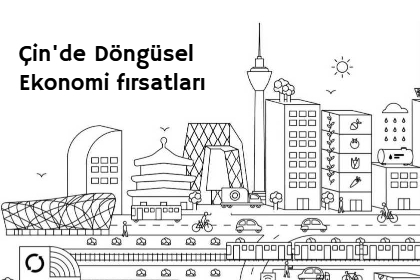
Applying circular economy principles at scale in China’s cities could make goods and services more affordable for citizens, while at the same time making cities more liveable, reducing emissions of fine particulate matter by 50%, emissions of greenhouse gases by 23%, and traffic congestion by 47%, by 2040.
The analysis, which identifies opportunities across five focus areas, built environment, mobility, nutrition, textiles and electronics, shows that applying circular economy principles at scale could save businesses and households approximately CNY 70 trillion by 2040 (16% of China’s projected GDP).
The report was launched in September 2018 at the World Economic Forum's Annual Meeting of the New Champions in Tianjin, China. It was produced by the Ellen MacArthur Foundation in partnership with Arup and McKinsey & Company, supported by UNCTAD and funded by the MAVA Foundation, with feedback from public institutions, academics and business circles in China.
Supported by the country’s leadership on circular economy policies, continuing urbanisation, rapid development of digital technologies, and a boom in asset-sharing platforms, China’s cities are well placed to become internationally-recognised beacons of successful circular economy transitions, the report finds.

